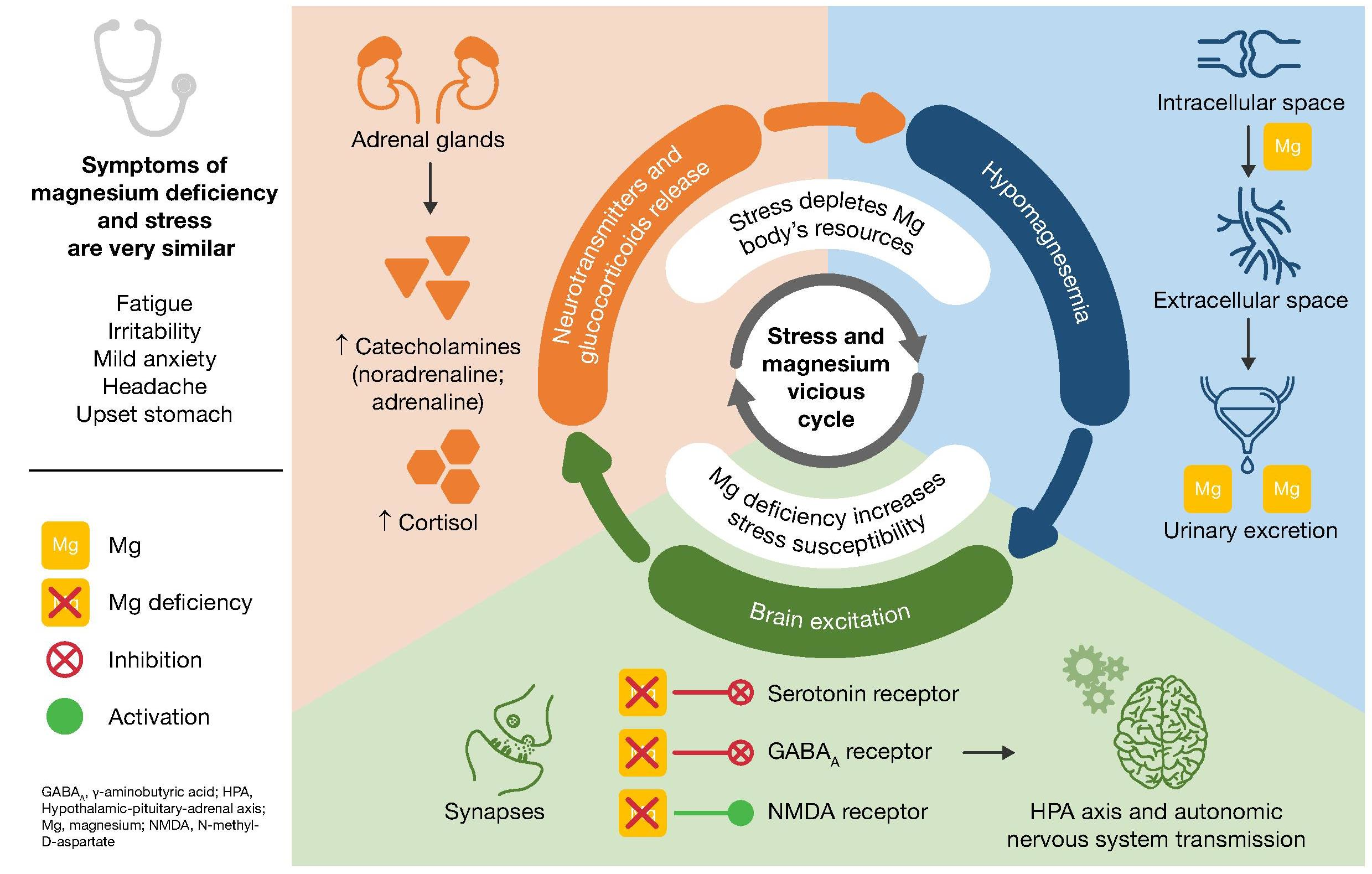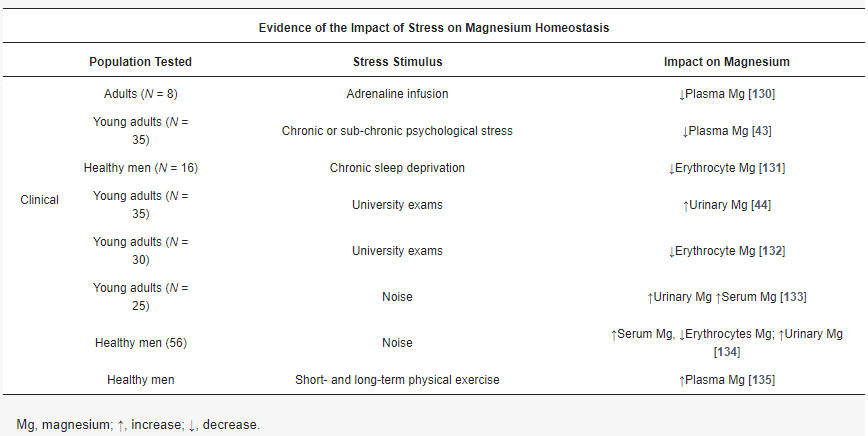About this article series
Welcome to “Body Systems Demystified,” the article series where we unravel the fascinating mechanisms that drive the human body. My approach to supplement formulation begins with a deep appraisal of the operation of the human body and all living systems (e.g. plants, animals, microorganisms). Exploring the intricate interplay of body mechanisms and nutrients allows me to design supplements that address these mechanisms and deliver on their promise. Join me on this enlightening journey as we uncover the secrets behind human body mechanisms and gain valuable insights into the dynamic relationship between your body and optimal health.
Stress, in all forms, is an unavoidable part of life.
Our bodies are constantly exposed to things that stress us (stressors) whether it is due to work, school, relationships, or unexpected challenges.
Our body has a “stress response system” to help us cope with these situations. However, constant stress can also have unintended consequences for our health.
One such consequence is the depletion of magnesium. Magnesium is an essential mineral that plays a crucial role in our well-being and our body’s stress management systems.
In this article, we will explore the intricate relationship between stress and magnesium: how stress can lead to low magnesium levels in the body, and how low magesium levels negatively affects our body’s ability to fight stress, almost like a vicious circle.
In this article we will take a diagram from a scientific article and break it down, making it understandable to everyone.
Scientific diagrams may seem intimidating at first glance but my goal with this article series is to show that, with a little guidance anyone can grasp the essence of scientific concepts even if these are often presented by complex visuals.
I am writing this while reminscing the words of my Honours Physiology teacher Associate Professor Pugo-Gunsam of the University of Mauritius who taught me the basics of physiology of all systems of the human body. Professor used a lot of these mechanistic diagrams to explain physiology to us, which today is an asset for my career. Thank you, Professor.

Magnesium’s role in stress modulation
Magnesium is often called the “anti-stress” mineral for a good reason. It plays a multifaceted role in our body’s stress response and overall functioning:
- Production of mood-supporting hormones: Magnesium is involved in the production of 5-HT (Serotonin) and in the binding of the latter to its receptor (which is important for it to work). Serotonin plays a significant role in mood regulation and emotional well-being.
- Supports the function of relaxing neurotransmitters: Magnesium enhances the binding of GABA to its receptors. GABA is the primary neurotransmitter (nervous system chemical) in the central nervous system, responsible for promoting relaxation and reducing overexcitation of nerve cells. Therefore, Magnesium makes GABA more effective in promoting calmness and reducing stress. That is why in my relaxation formulations I always rely on the synergy between Magnesium and GABA. Ingredient synergies are what make my products effective.

Relaxify, a product intended to promote relaxation, contains GABA and Magnesium. The synergy between these two ingredients makes the product more effective than either ingredient alone. Relaxify also contains other ingredients that support GABA, like Taurine and Theanine. Disclosure: I am the Chief Scientific Officer of Bioteen Teen Health and developed this product entirely from ingredient formulation to flavouring.
The effects of stress on Magnesium
In response to stress, our bodies activate a complex mechanism that involves the release of hormones called catecholamines, such as adrenaline and noradrenaline.
These catecholamines swiftly prepare our bodies for action, increasing heart rate, expanding airways, and redistributing blood flow to vital organs and muscles.
While this stress response is vital for immediate challenges, prolonged or chronic stress can lead to health concerns, underscoring the importance of stress management for overall well-being.
Here’s where another challenge lies: Stress Increases Magnesium Loss. When we’re stressed, our bodies excrete more magnesium through urine. Additionally, stress hormones like cortisol can interfere with magnesium absorption in the gut. This means that as stress levels rise, our magnesium levels tend to decrease.
Magnesium Deficiency Exaggerates Stress: On the flip side, magnesium deficiency can amplify the body’s stress response. Without sufficient magnesium, the body struggles to regulate stress hormones, leading to heightened stress and anxiety levels. Muscle tension and cramps may also worsen due to inadequate magnesium.

Strategies to halt stress and restore Magnesium
Now that we have delved into the intricate connection between stress and magnesium, let’s explore some practical steps you can take to manage stress effectively and restore your magnesium balance. Remember, breaking the cycle of stress-induced magnesium depletion is crucial for your overall well-being.
Ensuring an adequate intake of Magnesium helps to restore Magnesium Balance. You can achieve this through:
- Dietary Sources: Include magnesium-rich foods in your diet such as leafy greens, nuts, seeds, whole grains, and dark chocolate.
- Magnesium Supplements: consider a good quality magnesium that contain forms of magnesium like Magnesium Citrate, Magnesium Glycinate and Magnesium Malate. These generally absorb very well and are my go-to forms of Magnesium when developing supplements, compared to forms like magnesium oxide. A good Magnesium supplement must also contain Vitamin B6 and Vitamin D3 to aid absorption. I will deal on my formulation principles when formulating Magnesium supplements in another article. It is important to exercise caution when taking Magnesium supplements as excessive magnesium intake in one go can have laxative effects.
By managing stress effectively and ensuring an adequate intake of magnesium, we can break the cycle of stress-induced magnesium depletion and enjoy better physical and mental health.
References
Pickering, G., Mazur, A., Trousselard, M., Bienkowski, P., Yaltsewa, N., Amessou, M., Noah, L. and Pouteau, E. (2020). Magnesium status and stress: The vicious circle concept revisited. Nutrients, [online] 12(12), p.3672. doi:https://doi.org/10.3390/nu12123672.

To view my Professional Profile on LinkedIn: please click here
To see my latest product creations: www.bioteenhealth.com
To view my Scientific Publications on PubMed: please click here
To get in touch, please write to: info@supplementscientist.com
Follow supplementscientist.com on Facebook: please click here
Disclaimers
Medical: The information presented on this website is intended for adults 18 or over. Its aim is purely educational and does not constitute medical advice. Please consult a medical or health professional before you begin any program related to exercise, nutrition, or supplementation especially if you have a medical condition. If you consume any product mentioned on our site, you do so on your own free will, and you knowingly and voluntarily accept the risks.
Other: The views expressed in this blog article are solely mine and do not represent the opinions or positions of any company or institution with which I am associated. Any information or opinions provided are based on my personal experiences, research, and understanding. I strive to ensure accuracy and reliability of the information provided.
© 2023. Supplementscientist.com







Leave a Reply